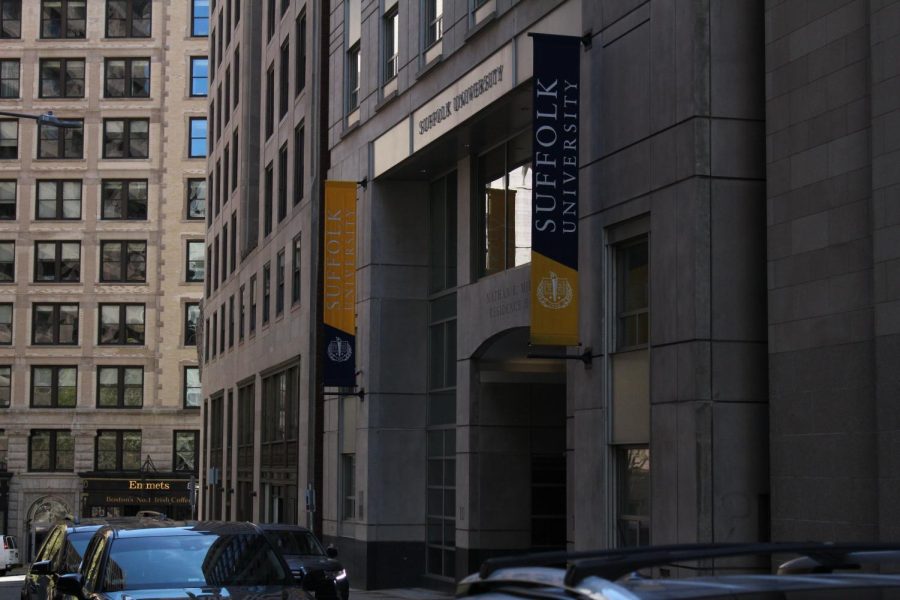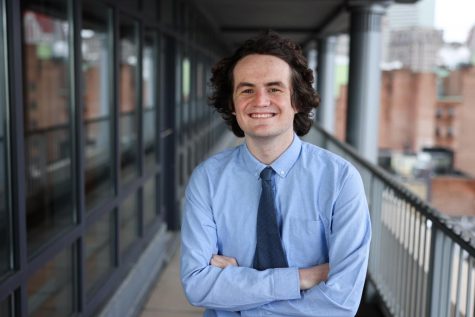Students are buzzing over the announcement that Suffolk University will be expanding its on-campus housing options.
Until now, undergraduates have only been guaranteed two years of housing, but that policy has changed.
Many have already noticed Suffolk’s newest residence hall at 101 Tremont Street, located directly above Beantown Pub, which is set to open next year. The addition marks a major expansion of Suffolk’s residential capacity. While the building is designed primarily for undergraduates, Residence Life is also working with Suffolk’s graduate and law programs to provide housing for those students as well.
Greg Gatlin, Suffolk’s vice president of communications, emphasized the significance of this change. Not only are new and returning undergraduates being housed in greater numbers, but Suffolk has also begun accommodating graduate and law students—something that has not always been possible in the past.
“[W]e were able to house 53 graduate and law students, and we expect to be able to offer some housing for them for the foreseeable future as well,” said Gatlin.
At present, graduate students are mixed into existing residence halls such as 10 West/Modern and Miller Hall, often alongside undergraduates.
While there is not yet a dedicated building for graduate housing, Gatlin noted that the university is open to expanding that option in the future.
For many students, a big question is why Suffolk is making this change now. Ava Bicknell, a sophomore marketing and international relations major, and resident assistant in Smith Hall, believes it comes down to competition.
“Other schools in Boston provide four years of guaranteed housing, so Suffolk wants to stay competitive,” said Bicknell.
She also pointed out that while apartments in Boston can be more affordable than on-campus arrangements—especially when rent is divided among roommates—on-campus living remains the more convenient option.
Students who live in Suffolk housing are just minutes away from their classes and university facilities, and can avoid the stress of the city’s hectic apartment search.
That convenience resonates with students who may not be familiar with Boston’s housing market, particularly those coming from out of state or overseas. For international students, guaranteed housing removes one of the biggest barriers to attending a university in a city where rental demand often outpaces supply. Gatlin confirmed that the housing expansion strengthens Suffolk’s appeal.
“[T]he ability to offer university-sponsored housing helps us recruit for all programs at the university” said Gatlin.
First-year students stand to be relieved. Instead of feeling pressured to begin apartment hunting as early as their sophomore year, they can rest assured that a space will be available for as long as they need it.
Beyond security, there are financial benefits to remaining in Suffolk housing. Because room and board costs can be incorporated into financial aid packages, students may be able to defer some of their housing payments through loans or grants. Renting an apartment, by contrast, usually requires upfront cash, a steady income, and additional responsibilities such as managing leases, utilities, and independent meal planning.
The opening of 101 Tremont and Suffolk’s shift toward four-year housing signals a turning point in how the university approaches residential life.
What was once a largely commuter school is steadily becoming a campus where more students choose to live for their entire undergraduate experience. For many, the change offers a sense of stability and belonging that extends beyond academics, allowing Suffolk students to call downtown Boston home for the entirety of their college experience.




















